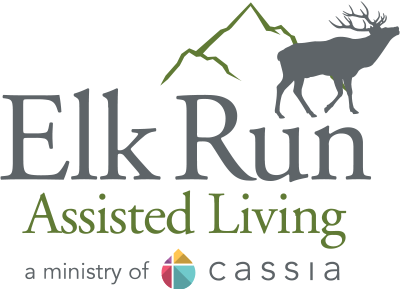by Patty Crawford, Center Manager
November was designated by Ronald Regan as Alzheimer’s Awareness Month to promote screening and diagnosis. Why aren’t people flocking to their physicians to do just that? If we look inward I think we all know the answer to that question. It is fear.
In some circumstances words of truth can be life saving. We hear stories of a routine visit to the doctor uncovering a life-threatening illness and the treatments saved a life. But, it is a different scenario for those diagnosed with dementia. It is important to examine the fear that is connected to Alzheimer’s and other forms of dementia. This internal work can uncover society stereotypes and our attitudes towards those who live with this disease.
The words of the poet John Keats come to mind, “When I have fears that I may cease to be.” The images of dementia that we see in the media are of the relentless erosion of memory, isolation, and the disappearance of self. The question is challenging. Who are we without our memories? Family, friends, and care partners have to face what Psychologist Pauline Boss refers to as ambiguous loss, which she defines as:
“When there is physical presence and psychological absence. In this type of ambiguous loss, the person you care about is psychologically absent- that is, emotionally or cognitively missing. Such ambiguous loss can occur from Alzheimer’s disease and other dementias, traumatic brain injury, AIDS, autism, depression, addiction, or other chronic mental or physical illnesses that take a loved one’s mind or memory away.”
It is a profound question to ask how we define self. Are we an accumulation of experiences, from childhood to adulthood? The image of memorial services filled with poster boards of photos or slide shows projected on screens comes to mind. At visitations people quickly turn away from a casket or urn and gather around the memories. For persons dying of dementia, the timeline seems to fold so friends and family support the memories leaving an awkward gap in time when their loved one was disconnected.
I work in the field of memory loss and have struggled with the concept of the disappearing self, while seeing the fear it generates. It doesn’t fit with my life experience. The members who attend Open Circle are so very present. Relationships form and nurture one another. Arguments erupt when personalities don’t mesh. When we lose a friend to death we have lost a whole person who has held a position our hearts. Each member of the staff grieves differently. So, I must return to the original question of how I define self. What happens if it is my life that holds a dementia diagnosis?
I have come to the conclusion that our identity is of the spirit. It has been with us from the beginning and is the element that draws us to others from the first day of elementary school to the understanding look of a stranger. The spirit will laugh, love, and find joy in a day. It is fueled by connection to others. The spirit is safe from the devastations of dementia. The spirit is not afraid.
So here we are in November when life pulls inward, away from the chilling wind. When we think about the diagnosis of Alzheimer’s and those who live with the disease, take extra care to nurture the spirit. Sometimes it isn’t words that support, instead it can be your presence, a handshake, or a smile that makes the difference. Draw close to one another, when we do this fear doesn’t have a chance.
